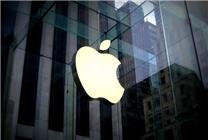Apple Trade-In Controversy: Consumer Outrage Over Denied Discounts
Summary
- Apple’s recent trade-in event has sparked significant backlash from consumers.
- Customers are reporting being denied promised discounts, citing reasons like “external maintenance.”
- Many affected users are frustrated over the refusal to return their previously owned devices.
In late October 2025, reports began to surface regarding widespread frustration among consumers participating in a recent Apple trade-in event. Customers are alleging that they were misled into believing they would receive substantial discounts on new devices when, in reality, they encountered unexpected denials after sending in their old phones.
One particularly vocal netizen shared their experience on social media, expressing disbelief at the lack of accountability from the tech giant. The user purchased an iPhone 17 Pro Max for a staggering 11,999 yuan, expecting a trade-in discount of 2,900 yuan for their old iPhone 14 Pro. However, upon submitting their old device for evaluation, they were shocked to discover that the promised discount was reduced to zero, with Apple citing “external maintenance” as the reason.
This incident has raised eyebrows, especially considering the user’s claim that the old device had never been repaired by a third party and was in perfect working condition. Apple’s refusal to provide any testing evidence to support their decision only deepened the frustration. Furthermore, the company reportedly denied the request to return the old phone, leaving the customer feeling scammed and voiceless.
The Ripple Effects of Miscommunication
The communication breakdown between Apple and its customers has had a notable impact on brand trust. Consumers had relied on Apple’s reputation for quality and reliability, making such incidents particularly jarring. Multiple users have echoed similar sentiments, detailing how they feel trapped in a situation with no viable solution. Many are calling for increased transparency regarding trade-in evaluations and a reassessment of policies that appear to disadvantage participants.
Consumer Rights and Corporate Accountability
The uproar surrounding this trade-in policy has opened a dialogue about consumer rights and corporate accountability. Hundreds of users have taken to forums and social media platforms, sharing their own experiences and seeking advice on how to navigate the complexities of the trade-in process. The issues raised are resonating with an audience that increasingly demands transparency from major corporations, especially those like Apple, which enjoy a significant market share and consumer loyalty.
What’s Next for Affected Consumers?
For those impacted by similar situations, several steps can be taken to address grievances:
-
Documentation: It’s crucial for consumers to maintain records of communications with Apple, including receipts of the trade-in offers, the status of their old devices, and any official communications received.
-
Consumer Advocacy: Many have found solace in consumer protection agencies, which can assist in mediating disputes between consumers and corporations.
- Public Sharing: By voicing experiences on public forums, consumers can create awareness and potentially garner support from others who have faced similar challenges.
As the controversy continues to unfold, it’s evident that Apple must take considerable steps to mend its relationship with its customer base. More transparent policies regarding trade-ins and a framework for dispute resolution are not just recommended but essential for restoring consumer confidence.
Conclusion
The recent Apple trade-in scandal reflects broader trends in consumer advocacy, transparency, and accountability. As consumers become more aware of their rights, corporations must adapt to maintain trust and loyalty in an increasingly competitive market. Moving forward, it will be imperative for Apple to reconsider its trade-in practices and engage in a more open dialogue with its customers. The stakes are high, and the brand’s reputation hangs in the balance.
With the tech landscape continually evolving, incidents like these serve as crucial reminders of the need for clear communication and genuine customer service, which can greatly influence consumer perceptions and loyalty.









